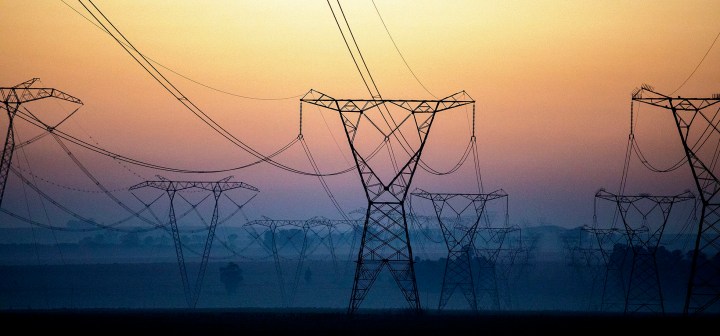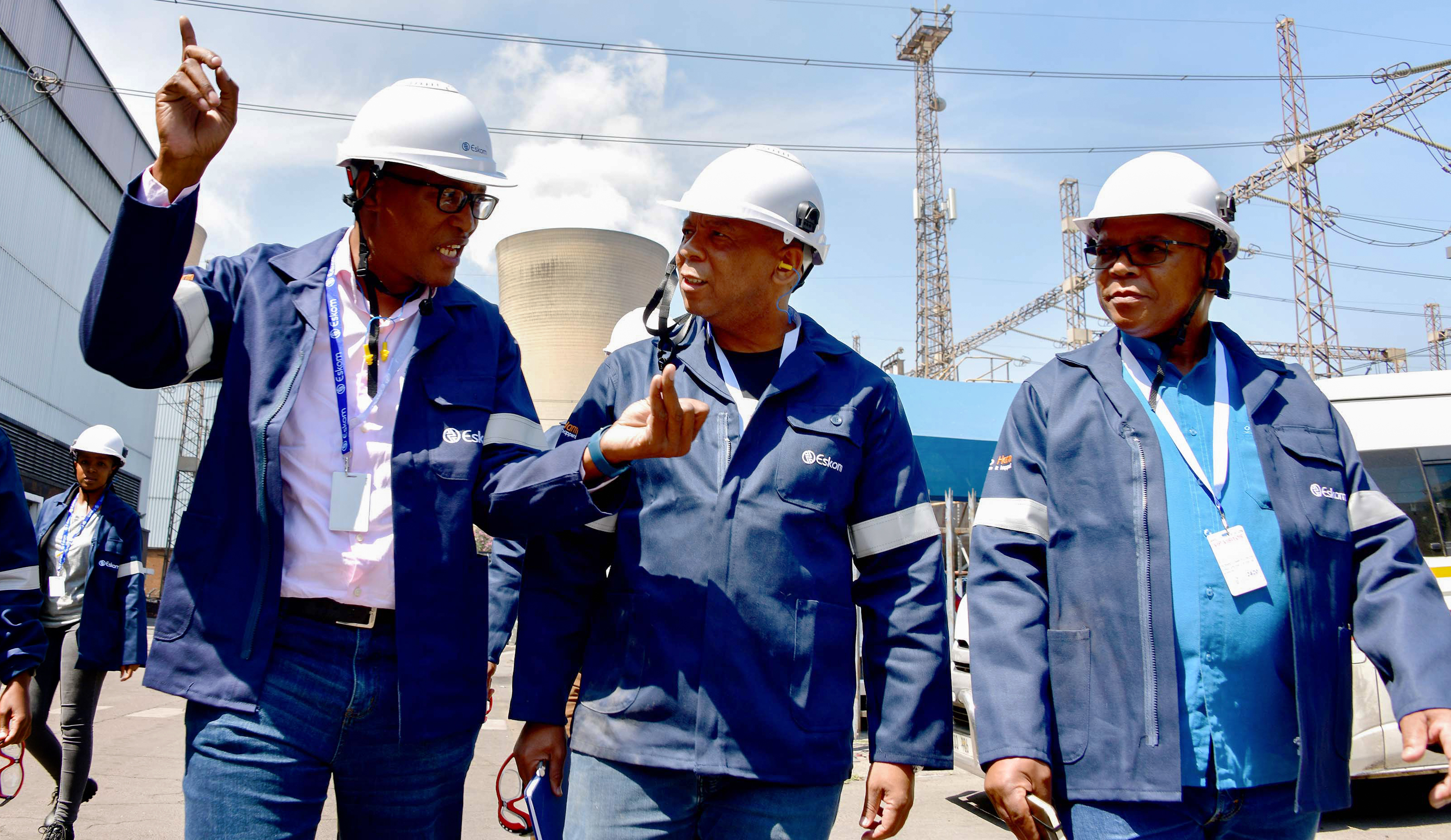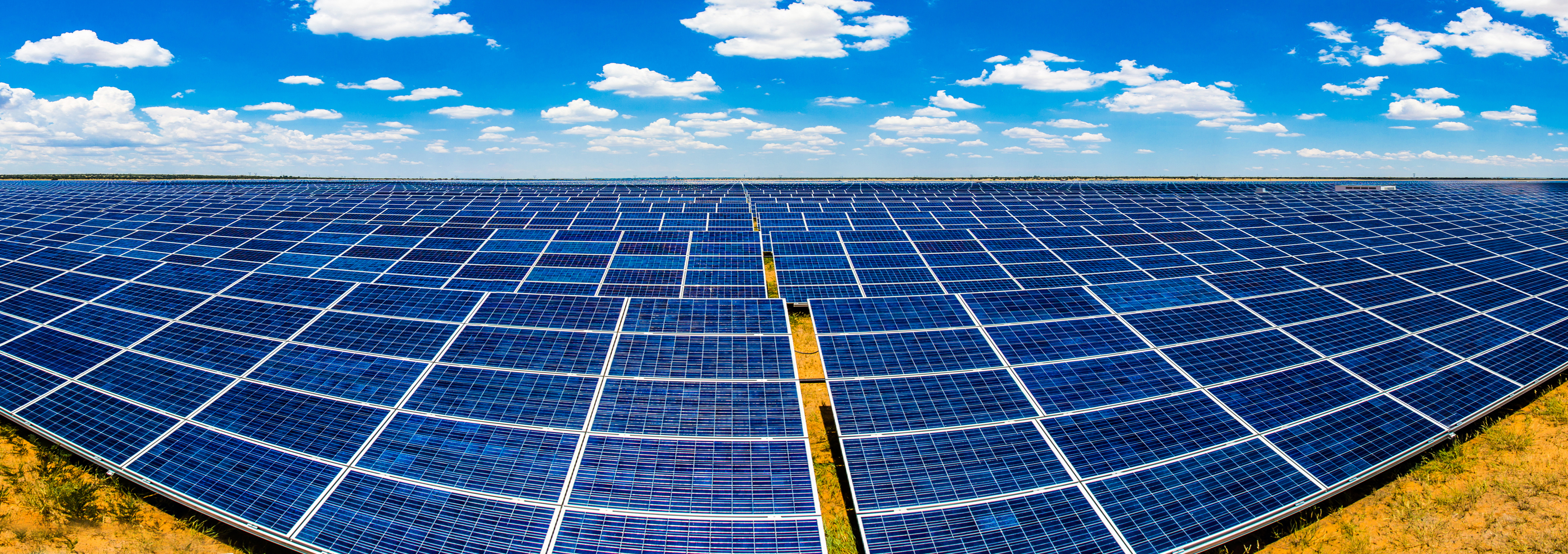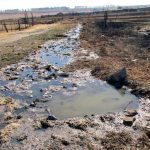ELECTRICITY CRISIS
‘Drastic measures’ needed to avoid power network collapse in Joburg, says City Power chairman

Presidency energy adviser Silas Zimu said the swift shutting down of coal plants and the slow introduction of renewables had caused an energy and economic crisis. In Johannesburg, City Power chairman Bonolo Ramokhele is seeking energy generation from the private sector while trying to salvage a network that is falling apart.
‘The Minister of Electricity decided that we’re not shutting down [old coal plants] because this is what started the 2023 load shedding,” said Energy Adviser in the Presidency Silas Zimu on Monday. (Unless Zimu is equating ‘breaking down’ with ‘shutting down’, this decision did not start the 2023 load shedding cycle. This was a result of an insufficient supply of energy due to a number of reasons, including unplanned outages – Ed)
“We’re supposed to keep them going and fast-track the introduction of renewables.”
Zimu was delivering the keynote address on behalf of Electricity Minister Kgosientsho Ramokgopa at the opening of the Future Energy Show Africa – the continent’s largest renewable energy exhibition under way at the Gallagher Convention Centre in Johannesburg.
Speaking to independent power producers, government officials, large energy users, solution providers and academics, Zimu explained that the problem wasn’t about introducing renewables – the Presidency has always supported that – but that while there were plans to shut down coal plants, not enough renewable energy was being introduced to replace them.

Minister in the Presidency responsible for Electricity, Dr Kgosientsho Ramokgopa (centre), accompanied by his adviser Silas Zimu (right) and other senior officials on an inspection of Eskom coal-fired power stations in Mpumalanga. (Photo: GCIS)
In the 13 years since the Renewable Energy Independent Power Producer Procurement Programme (REIPPP) was introduced, only 6,200 megawatts (MW) have been added.
Zimu said the last renewables connected to the grid were from REIPPP bidding round four. The programme signed its fifth round of IPPs at the end of 2022 under the fifth bid window – but those projects (meant to add 2,583MW of power) are expected to be added to the grid only in 2025.
Read more in Daily Maverick: How the ANC’s years-long delays on renewables plunged SA into darkness and scuppered plan to end blackouts
Zimu said that when Ramokgopa started work at the Presidency, he visited 18 power stations and discovered that “we’ve got a lot of supply that is installed, but half of it is not working”.
In the face of the power crisis, Zimu said they decided not to shut down the old power stations set to be decommissioned under Eskom’s 2035 policy.
Instead, they chose to push back the closing date for older coal-fired power stations set to be decommissioned, like Arnot, Camden, Hendrina and Grootvlei.
Read more in Daily Maverick: Electricity Minister Kgosientsho Ramokgopa to push for extending life of ageing coal-fired power station
“I said, let’s take a risk; let’s not shut down these stations,” said Zimu.
“And believe you me, these stations when they’re running, they run better and more reliably than our latest Kusile and Medupi [coal-fired stations]. And they are running. So we saved the economy.”
Zimu said the entire world has a similar problem – our electricity demand exceeds what we’re able to produce.
“But none of them do what a lot of them tell us to do. They’re saying, shut down your coal stations,” said Zimu, “but what they do in their countries, they’re fixing the current assets.”
Zimu said that system reliability depended on existing infrastructure: “Our coal generation keeps us going… If you look at the World Energy Outlook, the whole world is still reliant on coal.”
Zimu said Africa’s first carbon capture technology would be launched on Wednesday at Kelvin Power Station. It was funded by the Department of Science and Innovation.
“Our dream is that that can then be rolled out to a few of the coal stations so that we don’t have to shut them down,” said Zimu.
Renewables
Zimu said they discovered that the “lightning-speed shutting down of coal stations and snail speed of introduction of renewables into the grid” is what hit our economy.
“What needs to be done to save the economy is to fast-track the renewables,” he said, acknowledging the threat of climate change.
This would include new technologies such as solar, wind, fuel-cell and nuclear.
Zimu said the problem with rolling out renewables was that the transmission grid was tied up, especially in the Northern Cape where there were many solar investments.

An aerial view of Droogfontein solar park near Kimberly, Northern Cape. (Photo: Mainstream / Flickr)
“And as we’re speaking today, solar companies and developers are still applying for grid access… but we know there is no grid access.”
Read more in Daily Maverick: ‘Effectively on ice’: Grid capacity constraints jeopardise some renewable energy projects
City Power heads to the market
Bonolo Ramokhele, board chairman of Johannesburg’s City Power, told the energy conference that the municipal-owned entity had many challenges.
“We’re hoping that some of those solutions are going to come from the people sitting here.”
Ramokhele said they planned to “aggressively increase our partnership and build a compact with the private sector so that we’re able to deliver for the 5.6 million residents of Johannesburg”.
City Power began as an electricity distributor for the City of Johannesburg, receiving about 90% of its power from Eskom and 10% from Kelvin Power Station.
Ramokhele said that while they were waiting for Eskom’s generation to stabilise, they were going to the market to deal with the immediate issue of load shedding.
City Power will now bring in independent power producers after finally getting approval from the board and city council at the end of January. For the first bid window, they’re looking for 700 to 1,000 megawatts.
“I think I’m winning the debate internally that if we’re able to get, let’s say 2,000 megawatts of really good projects, that would ensure grid stability,” said Ramokhele.
Additionally, they’re adding open-cycle gas turbines to their business model, which Ramokhele said were owned by City Power and had been dormant for more than a decade.
This will provide an additional 100 megawatts. It will be launched later this month.
R50bn to fix a century-old network
It’s no secret that City Power’s network is not in good condition – communities across Johannesburg are constantly reporting broken substations and blown transformers.
Ramokhele said the network issues mainly stemmed from the age of the network.
“There are certain parts of our network, like the inner city and Roodepoort, that have been in place since the 1930s,” said Ramokhele, explaining that when equipment that’s nearly a century old breaks, finding spares is a challenge.
Ramokhele said it would take about R50-billion to get City Power’s old network up to scratch. Currently, the entity uses about R1-billion on capital expenditure a year.
“So you can do the maths. It’s going to take us about 50 years to be able to catch up to our current state,” said Ramokhele.
“My view is that we’re going to wake up one day and the network of Johannesburg would have collapsed if we don’t take drastic measures.
“And that is where colleagues, like those sitting in this particular forum, come in. We are of the view that the government alone is not going to be able to fix this.” DM




















 Become an Insider
Become an Insider
So where was the Minister…on holiday, at an overseas conference, both?.
Do these officials actually believe what they say, or do they at least know that they are spinning nonsense with the intent to deceive?
I might have missed the point but I read the following:
1/ “Zimu said they discovered that the “lightning-speed shutting down of coal stations and snail speed of introduction of renewables into the grid” is what hit our economy.” And
2/ “Zimu said the problem with rolling out renewables was that the transmission grid was tied up, especially in the Northern Cape where there were many solar investments.”
So the issue isn’t the snail speed of introducing renewables into the grid, but the ANC’s complete inability to
1/ plan ahead and understand the infrastructure requirements of the current (let alone the future), and
2/ actual implement the plan if there was one…
Don’t deflect to the private sector, when the issue sits entirely with the ANC government being unable to do what it was voted in to do. Change your votes people, to those that are able to do what they are supposed to!
Indeed.
And Zimu could’ve been honest and admit that Mantashe stalled/stopped renewable energy approvals to replace decommissioned coal. With Cyril’s approval. What rubbish.
Agree